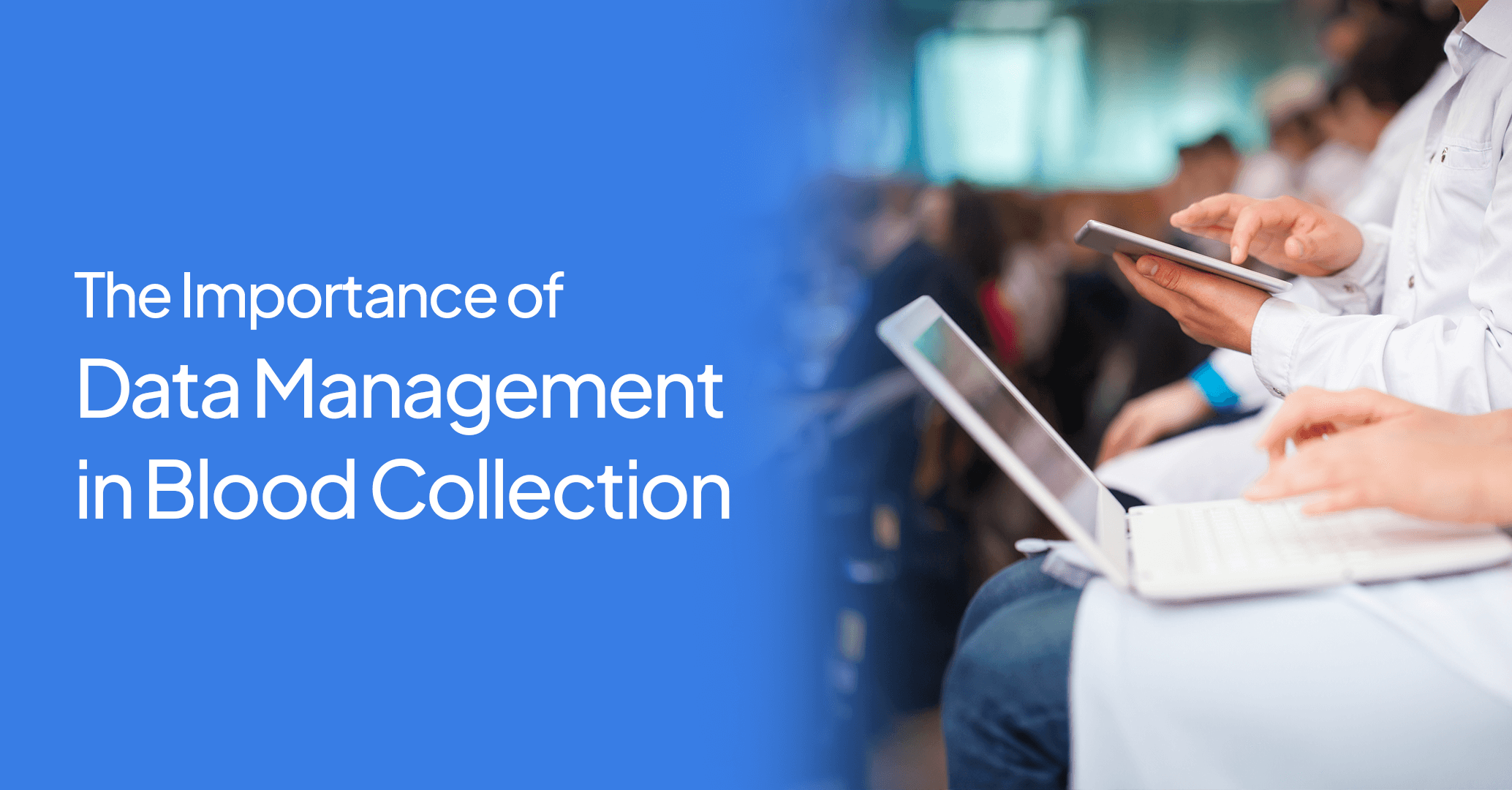Blood donation centers and hospitals with blood banks handle a massive amount of sensitive data related to blood donors, blood collection, testing, storage, and distribution. Efficient data management is crucial for ensuring the quality and safety of the blood supply while maintaining donor privacy. Here are some of the key reasons why data management matters in blood banking operations:
Donor Management
Blood banks maintain records on hundreds or thousands of blood donors. This includes contact information, demographic data, medical history, blood type, donation dates, infectious disease testing results, and more. Keeping donor records organized and secure is essential.
Benefits of Donor Management Platforms
- Improved Donor Experience: By providing a user-friendly interface for scheduling and managing appointments, these platforms make the donation process more convenient for donors.
- Enhanced Efficiency: Automation of routine tasks such as donor reminders and follow-ups frees up valuable resources, allowing staff to focus on more critical aspects of blood collection and management.
- Data-Driven Decision Making: With real-time data analytics, blood banks can make informed decisions about donor recruitment strategies and inventory managemen
Challenges in Data Management
Despite the advancements, data management in blood collection faces several challenges:
- Data Security and Privacy: Protecting sensitive donor information is paramount. Blood banks must ensure compliance with data protection regulations to maintain donor trust.
- Integration with Healthcare Systems: Seamless integration with broader healthcare systems is crucial for sharing information and ensuring the availability of blood products where and when they are needed.
- Handling Massive Volumes of Data: The sheer volume of data generated by blood banks requires robust systems that can store, process, and retrieve information efficiently.
The Future of Blood Collection Data Management
Looking ahead, the future of data management in blood collection is geared towards greater integration, advanced analytics, and enhanced donor engagement. Technologies like artificial intelligence and machine learning are set to play a significant role in predicting blood supply needs and optimizing donor management processes.
Blood Product Tracking
Each blood donation must be tracked from collection through processing, testing, storage, and distribution. Blood components like red blood cells, platelets, and plasma may be split into multiple products for different patients. Accurate inventory management and product tracking prevents errors and ensures efficient use of blood products before they expire.
Barcode scanning, RFID tags, and integrated information systems allow blood banks to follow each unit through its lifecycle. Data collection improves traceability and quality control if products need to be recalled or investigated for possible issues.
Testing and Results Reporting
Collected blood undergoes infectious disease testing for HIV, hepatitis, syphilis, and other transmittable diseases. Blood banks perform hundreds or thousands of tests each month. Laboratory information systems track each sample through testing, verify quality control, and compile test results.
Reporting systems also enable blood banks to share test results and other records with health agencies as required by regulations. Close monitoring of testing data helps ensure the safety of the blood supply.
Quality Control
Rigorous quality control is vital in blood banking due to the direct transfusion of products into patients. Data collection supports quality management activities like validating test results, monitoring refrigeration temperatures, documenting equipment maintenance, recording employee training, and tracing products to recipients if adverse events occur.
Digital systems automate many quality assurance tasks. Data analytics can identify areas for improvement. Overall, thorough data collection enables blood banks to constantly refine processes and prevent defects.
Regulatory Compliance
Blood banks must comply with government regulations covering donor screening, blood testing and labeling, recordkeeping, product recalls, and more. In the United States, the Food and Drug Administration (FDA) oversees regulations for blood collection facilities.
Maintaining accurate, timely data enables blood banks to meet regulatory requirements for reporting and auditing. Investing in data management tools facilitates compliance.
Research and Analytics
Donor demographics, blood usage trends, and testing data provide a wealth of information that can be mined to improve blood collection and distribution. Analysis may identify ideal locations for blood drives, changes in demand for blood types, population health indicators, and effectiveness of infectious disease testing protocols.
Robust data collection and analytics capacities allow blood banks to become information hubs that provide key insights with public health, medical, and research value. But this is only possible with a strong data foundation.
Closing Thoughts
Effective data management is the backbone of a successful blood collection system. It ensures the safety and adequacy of the blood supply, enhances donor engagement, and enables blood banks to respond swiftly to changing needs.
As technology continues to evolve, it’s crucial for blood banks to embrace innovative solutions like donor management platforms to meet the challenges of today and prepare for the demands of tomorrow. By doing so, they not only optimize their operations but also contribute significantly to saving lives and improving healthcare outcomes.
